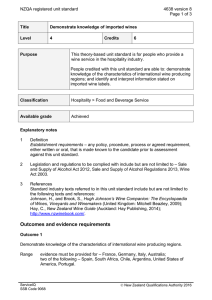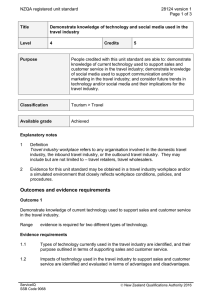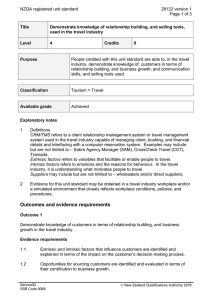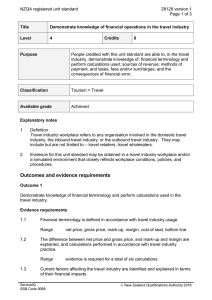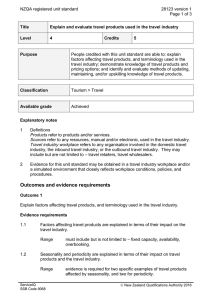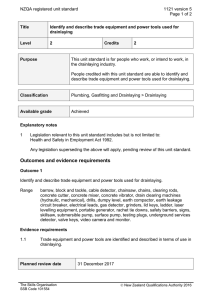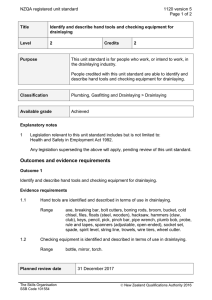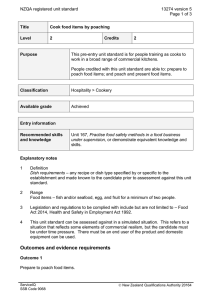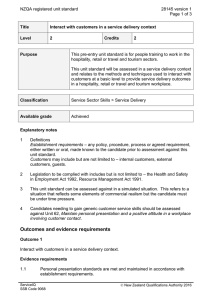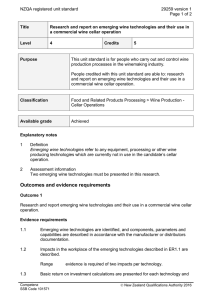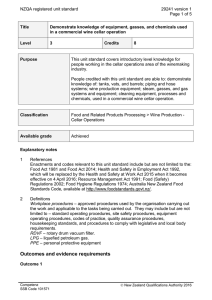NZQA registered unit standard 22912 version 3 Page 1 of 3
advertisement
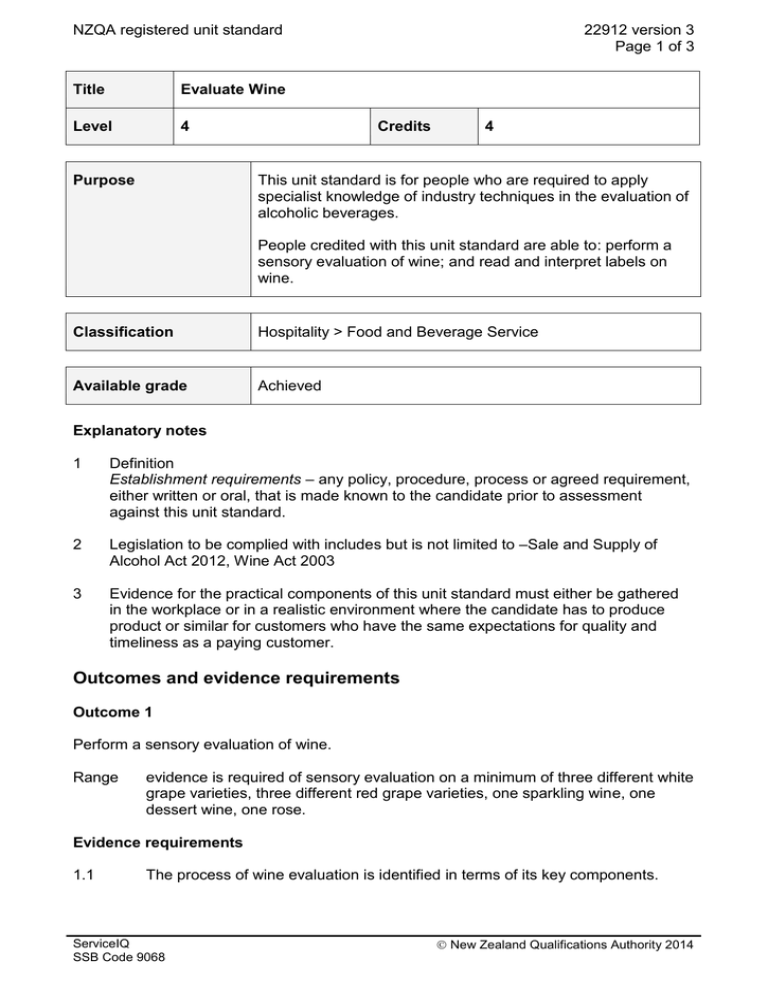
NZQA registered unit standard Title Evaluate Wine Level 4 Purpose 22912 version 3 Page 1 of 3 Credits 4 This unit standard is for people who are required to apply specialist knowledge of industry techniques in the evaluation of alcoholic beverages. People credited with this unit standard are able to: perform a sensory evaluation of wine; and read and interpret labels on wine. Classification Hospitality > Food and Beverage Service Available grade Achieved Explanatory notes 1 Definition Establishment requirements – any policy, procedure, process or agreed requirement, either written or oral, that is made known to the candidate prior to assessment against this unit standard. 2 Legislation to be complied with includes but is not limited to –Sale and Supply of Alcohol Act 2012, Wine Act 2003 3 Evidence for the practical components of this unit standard must either be gathered in the workplace or in a realistic environment where the candidate has to produce product or similar for customers who have the same expectations for quality and timeliness as a paying customer. Outcomes and evidence requirements Outcome 1 Perform a sensory evaluation of wine. Range evidence is required of sensory evaluation on a minimum of three different white grape varieties, three different red grape varieties, one sparkling wine, one dessert wine, one rose. Evidence requirements 1.1 The process of wine evaluation is identified in terms of its key components. ServiceIQ SSB Code 9068 New Zealand Qualifications Authority 2014 NZQA registered unit standard 22912 version 3 Page 2 of 3 key components include but are not limited to – characteristics and design of tasting glass, tasting environment, components of wine, condition, clarity, bouquet, temperature; taste includes but is not limited to – palatal structure and flavour, sweetness; methods include but are not limited to – formal evaluation and judging. Range 1.2 The characteristics of the wine are identified in terms of grape variety, sight, smell and taste. 1.3 Any basic faults in wine are detected for faulty and contaminated corks, oxidation, or excess sulphur dioxide. Outcome 2 Read and interpret labels on wines. Range information on labels may include but is not limited to – volume, appellation, minimum alcohol, level of sweetness/ripeness, grape variety, vintage, country of origin, estate bottle (produce), additives. Evidence requirements 2.1 Labels are read and interpreted in terms of the labelling system and wine legislation requirements. 2.2 Terminology on labels is pronounced in accordance with establishment requirements. Planned review date 31 December 2019 Status information and last date for assessment for superseded versions Process Version Date Last Date for Assessment Registration 1 25 July 2006 31 December 2014 Review 2 12 December 2008 31 December 2017 Review 3 20 February 2014 N/A Consent and Moderation Requirements (CMR) reference 0112 This CMR can be accessed at http://www.nzqa.govt.nz/framework/search/index.do. Please note Providers must be granted consent to assess against standards (accredited) by NZQA, before they can report credits from assessment against unit standards or deliver courses of study leading to that assessment. ServiceIQ SSB Code 9068 New Zealand Qualifications Authority 2014 NZQA registered unit standard 22912 version 3 Page 3 of 3 Industry Training Organisations must be granted consent to assess against standards by NZQA before they can register credits from assessment against unit standards. Providers and Industry Training Organisations, which have been granted consent and which are assessing against unit standards must engage with the moderation system that applies to those standards. Requirements for consent to assess and an outline of the moderation system that applies to this standard are outlined in the Consent and Moderation Requirements (CMR). The CMR also includes useful information about special requirements for organisations wishing to develop education and training programmes, such as minimum qualifications for tutors and assessors, and special resource requirements. Comments on this unit standard Please contact ServiceIQ at qualifications@serviceiq.org.nz if you wish to suggest changes to the content of this unit standard. ServiceIQ SSB Code 9068 New Zealand Qualifications Authority 2014
